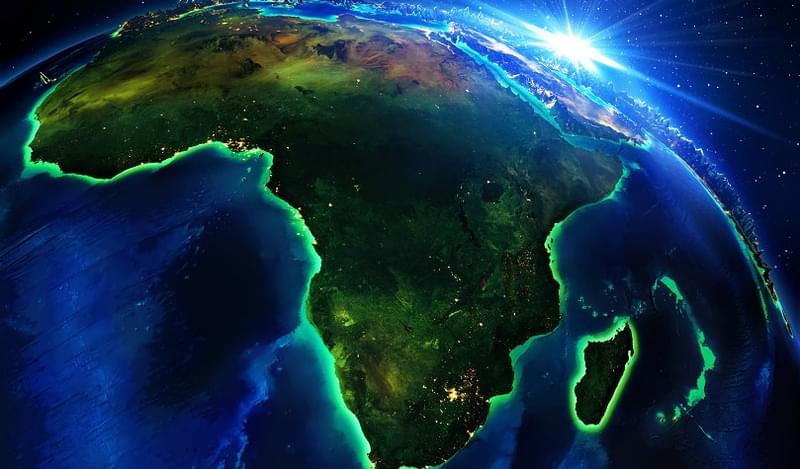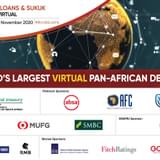South Africa
Regulators have started to review more than 70 JSE-listed firms to ensure compliance with local employee equity laws, the Department of Labour announced. Firms that contravene the legislation, which was developed to eliminate systemic racism and create a more diverse workforce after the fall of the Apartheid regime, could face up to US$112,000 in fines, and could be liable for criminal prosecution. The Department has not given any indication of why it is specifically targeting those firms.
South Africa still risks having its local debt kicked out of major government bond indexes if the country fails to avoid further downgrades. In a recent note, Chris Turner, Global Head of Strategy at ING Bank said the possibility of Zuma's ex-wife taking the helm of the ANC could prompt further market concerns. "We remain concerned that South Africa’s local currency debt remains one notch above junk at the key ratings agencies of Moody’s and S&P. A shift to junk status for the local currency ratings from both agencies would take South African government bonds out of key international benchmarks such as the WGBI and Barclays Global Aggregate, prompting ZAR outflows as much as 2.5% of GDP (around US$8bn), according to the IMF."
President Jacob Zuma wants the African National Congress to identify and punish party members who voted against him in a recent no-confidence motion, he told ANC members, according to a report in Reuters. About 30 lawmakers voted against Zuma in a secret ballot August 8, and it is unclear how the party would be able to identify who voted for his ouster.
A high court rejected calls by the country's anti-graft head and public prosecutor to change the Central Bank's mandate to include a focus on boosting economic growth. Public Protector Busisiwe Mkhwebane originally proposed the change earlier this year, against the advice of a number of lawmakers and the Central Bank governor. High Court judge John Murphy tossed out the proposal, adding that "she would do well to reflect more deeply on her conduct in this investigation and the criticism of her by the Governor of the Reserve Bank and the Speaker of Parliament."
Standard Bank of South Africa is planning to issue its first international bond in almost a decade. The lender set out requests for proposals three weeks ago and will hold a non-deal roadshow in London. Bank of America Merrill Lynch, HSBC and JP Morgan will arrange the deal.
A New Development Bank (NDB) set up by the "BRICS" group of emerging economies plans to lend US$1.5bn to South Africa for infrastructure projects over the next eighteen months, Reuters reported. The BRICS – Brazil, Russia, India, China and South Africa – agreed to create the infrastructure-focussed lender in July 2014 as an alternative to the World Bank, launching it a year later. The bank, headquartered in Shanghai, officially opened its African regional centre in Johannesburg, which will identify projects that it can fund.
Oakbay Investments, the main company owned by South Africa's Gupta brothers, who have close ties to President Jacob Zuma, it would sell its media assets amid the ongoing influence-peddling scandal. Oakbay said the sale of its stakes in the New Age newspaper and the ANN7 television news channel would give its owners time to focus on clearing their name "in the face of unfounded media allegations". Senior members of the ruling African National Congress party have accused the Gupta family of using links with Zuma to wield influence and win business.
State-owned rail logistics group Transnet has won a competitive bid to recapitalise the National Railways of Zimbabwe (NRZ), the NRZ Chairman said this week. Transnet will inject US$400mn into the struggling government-owned rail group alongside Diaspora Infrastructure Development Group, a consortium of Zimbabwean investors living abroad. The funds will be used to refurbish existing equipment and finance other much-needed upgrade works.
Nigeria
A Nigerian court struck out a lawsuit against seven local banks accused of withholding US$793mn owed to the state after the government said it would try to settle out of court. Justice Chuka Obiozor, in his decision, said the government had filed a notice to halt the case. He awarded a cost of NGN200,000 (US$548) each to the seven banks as compensation, Reuters reported.
Nigerian companies have hit out at the government for reportedly excluding local contractors from US$20bn in rail projects in the country, according to local press reports. A report in Nigeria's Guardian newspaper suggests up to US$8bn in contracts should be going to local firms as part of the government's policy of reserving 40% of any publicly funded project for indigenous companies. Most of the contracts (98%) for projects like the Kano State Rail, the Lagos Monorail, and a new light rail system in Lagos are going to Chinese companies, part of the government's agreement with China Civil Engineering Construction Corporation (CCECC), the Chinese government-owned vehicle funding the projects.
Ogun State government has issued a statement conflicting with reports that a US$350mn loan proposal being negotiated with the World Bank was rejected. According to the Commissioner for Budget and Planning, Adenrele Adesina, the World Bank is still considering the proposal, and that the government is continuing to assess potential terms and conditions linked with a new facility.
Foreign exchange reserves rose to more than the two-year high of US$31.22bn by August 8. Nigeria's dollar reserves, which have been battered by lower oil prices, climbed back to a level they last reached in July 2015, shortly after President Mohammadu Buhari took office, the data showed.
The Nigerian National Petroleum Corporation (NNPC) claims its four most recent joint ventures with upstream oil and gas companies in the country are expected to yield up to US$30bn for the country over the next decade. The four offshore and onshore joint ventures with companies like Schlumberger and Chevron have all been finalised over the past three years, and will help the company clear some of its debt in arrears, incurred after a steep fall in the oil price and difficulty securing international funding for ongoing projects.
Minister of Finance Kemi Adeosun announced new measures aimed at improving the country's foreign currency debt sustainability as it looks to refinance a number of Treasury bills into US dollars. "We got an approval in June to restructure our debt profile; we will borrow less in naira and more in foreign currency because it’s cheaper and we want to prevent crowding out the private sector," she said at a press conference this week. "As the naira treasury bills mature, we will be issuing dollar instrument. We are not increasing our borrowings; we are simply restructuring, instead of owing naira we will be owing dollars and the advantage to that one is cost reduction. The average rate we borrow internationally doesn’t exceed 7%. Our treasury bills were paying between 13.6 and 18.5%."
Lagos state raised NGN85.14bn (US$271mn) in 7- and 10-year bonds to fund infrastructure and environmental projects, its commissioner for finance announced. The bond consists of NGN46.37bn 7-year debt at a 16.75% rate and NGN38.77bn via a 10-year paper with 17.25% interest, Akinyemi Ashade said in a statement.
The Federal Government has approved a NGN39bn (US$106mn) loan facility to Electricity Distribution Companies (DISCOs) for the supply of smart meters, the country's Minister of Power, Works and Housing announced this week. Babatunde Fashola said the move will help ensure a more robust and dependable power supply throughout the country.
Kenya
Protests erupted in Kenya just one day after voters took to the polls to elect a new president, with the main opposition leader Raila Odinga claiming that the election systems and website were hacked to show his rival and incumbent president Uhuru Kenyatta in the lead. The claim was dismissed by Kenya's election commissioner as "fictitious", but isolated incidents of violence have broken out in some parts of Nairobi and the western part of the country. Provisional results from the election commission website put Kenyatta in front with 54.3% of votes counted to 44.8% for Odinga.
The government of is offering new five-year and 10-year Treasury bonds to bolster budgetary support after billions were spent on the General Election. The Treasury aims to raise KES30bn through both instruments, with the 10-year notes attracting an annual interest rate of 12%, while the interest for the five-year bill will be market-determined.
Kenya's National Highways Authority has signed a KES230bn (approx. US$2.21bn) with Bechtel International for the construction of a 473km highway between Nairobi and Mombasa. A portion of the funding for the 4-lane expressway is likely to come from the US Export-Import Bank and the Overseas Private Investment Corporation (OPIC).
Mozambique
Mozambique's Central Bank cut its new benchmark monetary policy interest rate (MIMO) by 25bp to 21.50%, saying the continued decline in consumer prices reinforced its forecast that inflation would be lower by the end of this year amid higher food supply, moderate domestic demand, exchange rate stability and favourable commodity prices.
Cameroon
Eximbank USA gave Cameroon a CFA26bn loan to finance the construction of sports infrastructure planned for the 2019 African Cup of Nations. The credit facility will carry an interest rate of 2.5%, and will allow the U.S firm Prime Potomac and its partners to carry out the rehabilitation of four training stadiums in the northern city of Garoua, to host one of the AFCON groups.
Ghana
Ghana is set to cut spending in 2017 as weak revenue collections has not allowed the country to balance its accounts, Finance Minister Ken Ofori-Atta said. In July, the world’s second largest cocoa producer cut the budget-deficit forecast to this year 6.3% of GDP from 6.5%.
The country is considering trimming down its plans for a CHS10bn (approx. US$2.3bn) local-currency bond sale as the West African nation struggles to identify revenue sources for interest and capital repayments, Bloomberg reported. The debt, which will be issued through a special-purpose vehicle and backed by a tax on the sale of petroleum products, may be staggered in smaller tranches as the projected income from the levies are only sufficient for a bond sale of CHS7bn over 15 years.
Namibia
Air Namibia could face eviction from its home at Windhoek International Airport among others in the country due to outstanding debt owed to the Namibia Airports Company (NAC), The Namibian reports. The company reportedly owes up to NAD200mn (US$15mn) in ground rent service charges, maintenance, and ground handling fees. The NAC owns eight airports in Namibia, of which Air Namibia operate out of seven. A loan repayment plan originally agreed in January this year has reportedly not been adhered to, and the airline has struggled to make payments on existing debt after it failed to secure a NAD10bn bailout from the Namibian government.
Namibia's stock of foreign reserves increased to NAD28.5bn (approx. US$2.17bn) at the end of June, an all-time high, driven by an influx of new international loans. The figures were up substantially from NAD25.4bn seen in May. The Bank of Namibia has received the first tranche of a U$750mn 2-year loan from the African Development Bank, one of the main drivers for the increase.
Moody's has downgraded Namibia's long-term senior unsecured bond and issuer ratings to junk due to erosion of its economic fundamentals. The rating agency downgraded the country's credit from Ba1 from Baa3, citing worsening fiscal imbalances and increased debt burden. "The public debt burden has risen rapidly over the past several years, from the low level of 26% of GDP when Moody's first assigned the rating in 2011 to the current 42%," it said. The agency maintains its negative outlook on the country.
The Democratic Republic of Congo
The Democratic Republic of Congo balanced its budget in all but two months between January and July without reverting printing money to pay bills, its finance minister explained. "We decided in January to tighten the budget and fix as an objective a zero deficit, or where this is not possible, a deficit reduced and easily paid off with receipts from coming months," the minister, Henri Yav Mulang, was quoted as saying by Reuters, adding that this has been achieved without printing new notes.
Angola
S&P Global Ratings downgraded Angola’s sovereign credit rating to B- from B and raised outlook to stable from negative. According to the rating agency this is due to the African nation’s rising debt service costs and weak economic prospects.
Botswana
The International Monetary Fund (IMF) has revised Botswana's 2017 and 2018 economic growth forecast due to rising diamond demand, investment in the water and power sector and reforms to attract
investment. The IMF on Wednesday lifted the African country’s 2017 and 2018 economic growth forecast to 4.5 and 4.8% respectively.
Gabon
Gabon successfully placed US$200mn in fresh Eurobonds. Deutsche Bank led the transaction, with the final yield on the notes reaching 6.85%. Proceeds from the bond will be used to help refinance another bond coming due in December this year.
Mauritius
Mauritius needs to tighten monetary policy and modernise its framework to respond to shocks and tackle inflationary pressures, the International Monetary Fund said, according to Reuters. In a statement, the IMF said its directors had noted on their yearly consultative mission to Mauritius that "inflation has picked up on the back of supply shocks, but there are signs of further building inflationary pressures". "The mission recommends tackling inflationary pressures by tightening monetary policy, while modernizing the monetary policy framework to strengthen policy response to shocks”.
Rwanda
Rwanda will sell five-year Treasury bonds worth RWF10bn (US$12.12mn) this month to fund infrastructure projects, the Central Bank announced in a statement. Bids for the bond, which coupon hasn’t been set, will be received from Aug. 21 to Aug. 23. Rwanda has been issuing bonds as part of a plan to develop its nascent capital markets and fund infrastructure projects.
Tunisia
A worsening trade deficit has further eroded Tunisia's foreign currency reserves, which are now at the weakest level in three decades. Tunisia's Central Bank said that foreign currency reserves had fallen to TND11.597bn (US$4.8bn) by mid-August, enough to cover 90 days of imports, compared with that 118 days registered in the same period a year earlier. Sources told Reuters that the decline in reserves to "dangerous levels" was due to a worsening trade deficit.
Moody's Investor Service downgraded Tunisia's long-term issuer rating to B1, four levels below investment grade, from Ba3. According to the rating agency this due to a continued deterioration in its fiscal strength and persistent external imbalances as the North African country struggles to maintain a firm economy in the aftermath of the Arab Spring.
Uganda
Uganda's Central Bank left its key lending rate unchanged at 10%, saying economic activity was picking up. Bank of Uganda Governor Emmanuel Tumusiime-Mutebile said the economy had gathered momentum in first half of 2017 and would grow at 5 to 5.5% in 2017/18, Reuters reported.
Standard Bank Group Ltd.’s Ugandan unit hopes to raise US$3bn for a crude pipeline by the second half of next year as the country prepares to begin oil production by 2020. Stanbic Bank Uganda was appointed alongside Japan’s Sumitomo Mitsui Banking Corp. as joint financial adviser for the 1,445-kilometer (898-mile) pipeline, according to Bloomberg. The companies will explore raising bank debt or loans from export credit agencies among the options they are considering, sources said.
Zambia
Zambia’s Central Bank cut its benchmark lending rate for a third time this year as inflation remained below the government’s target. The Bank of Zambia lowered the rate to 11% from 12.5%, according to Bloomberg. That’s the lowest level since February 2014.
Zimbabwe
Zinara, Zimbabwe's National Roads Administration, is looking to float a US$60mn bond, with the proceeds going towards upgrading the country's road infrastructure. The bond was arranged by ZB Bank, and if successful the organsation plans to issue another US$40mn later this year, according to ZB Financial Holdings CEO Ron Mutandagayi. Earlier this year Zimbabwe's government declared that its roads were in a 'state of disaster' and that an emergency rehabilitation programme was needed.
The Industrial Development Corporation of Zimbabwe is looking to raise US$100mn from international markets as it looks to start development finance operations. The company is currently in talks with the Industrial Development Corporation of South Africa and the Reserve Bank of Zimbabwe for a seed capital facility, and has already secured a US$20mn line of credit from the former.









